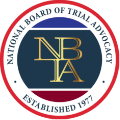Do motorcycles need to use turn signals in West Virginia? Yes, West Virginia law requires all motor vehicle operators to indicate turns with signals. This applies to motorcycle riders just as it does to passenger vehicle drivers.
Signaling turns on a motorcycle doesn’t merely help you avoid legal penalties. It can also help you stay safe on the road. If you’re ever hurt in a West Virginia motorcycle crash someone else caused, whether you were obeying all applicable traffic laws can influence how much compensation (if any) you may be eligible to receive.
If you’ve been hurt in a motorcycle accident, contact a West Virginia motorcycle accident attorney at Robinette Legal Group, PLLC, to discuss your situation.
Motorcycle Systems and Equipment Requirements
West Virginia law requires motorcyclists to have some specific equipment on their motorcycles and for the vehicles to conform to the following standards:
- All windscreens or windshields must be made of shatter-resistant material and comply with DOT and ANSI standards
- Handlebars and grips may be no more than 15 inches higher than the uppermost part of the operator’s seat
- Motorcycles must be equipped with a rearview mirror that allows a clear view of at least 200 feet behind the vehicle
Additional requirements for West Virginia motorcycles appear in the Official Motor Vehicle Inspection Manual.
Comparative Negligence in West Virginia Motorcycle Accidents
If you get hurt as a motorcycle rider because someone else causes a motorcycle crash in West Virginia, you can seek financial compensation for medical bills, lost wages, and related losses. Doing so involves filing a claim with the insurance company of the driver or other party responsible for the crash.
However, West Virginia has a modified comparative negligence law that can affect your ability to seek compensation and the amount you might be able to recover. If your percentage of fault is less than the combined fault of all other parties, you may recover compensation, although your compensation will be reduced by your percentage of fault. If your percentage of fault is greater than the combined fault of the other parties, you won’t be able to recover compensation following an accident.
What to Do After a Motorcycle Accident
If you are a motorcycle accident victim, take these steps after a motorcycle wreck to safeguard your health and your rights:
- Get to safety
- Check for injuries
- Check on the others involved in the crash
- Call 911 to report the wreck
- Exchange insurance and contact information with other driver(s)
- Get the names and contact information of any eyewitnesses
- Take pictures and videos of the crash scene
- See a doctor right away – don’t skip going to the doctor just because you don’t think your injuries are serious
Finally, speak with an attorney with experience handling motorcycle accident cases as soon as possible after a crash. They will help you understand your legal options and your possible avenues for compensation.
Contact Our West Virginia Motorcycle Accident Lawyers for Help
Failure to use a turn signal may not necessarily prevent you from receiving compensation after a motorcycle crash. Many factors can influence whether you’re eligible for compensation.
The best way to learn about your options after a wreck is to speak with an attorney. At the personal injury law firm of Robinette Legal Group, PLLC, a West Virginia motorcycle accident lawyer can answer your questions and provide the dedicated representation you need to pursue a motorcycle accident claim. Contact us for a free case review to learn more about a potential motorcycle accident case.
Our Awards and Certifications











Practice Areas
- Personal Injury Overview
- Bicycle Accidents
- Brain Injuries
- West Virginia Burn Injury Attorney
- Car Accidents
- Commercial Delivery Truck Collisions
- Construction Site Injuries
- Dog Bite Injuries
- Drunk Driver (DUI) Accidents
- Gas Explosion Injuries
- Insurance Claim Disputes
- Mining Accident Injuries
- Motorcycle Accidents
- Pedestrian Accidents
- Medical Malpractice
- Rear-End Collisions
- Scaffold & Ladder Fall Injuries
- Slip And Fall Accidents
- Spinal Cord Injuries
- Truck Accidents
- Uninsured Motorists
- Work Accidents
- Wrongful Death



